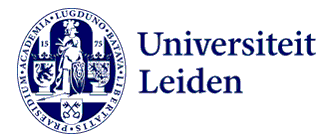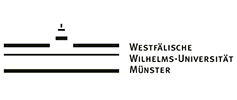The Constitutional Court’s Role in Consolidating Democracy and Reforming Local Election
DOI:
https://doi.org/10.31078/consrev115Keywords:
consolidation of local democracy, Local Election Dispute, Constitutional CourtAbstract
Within the same group as the USA and India Indonesia is one of the largest democracies in the world. After experiencing authoritarian rule for a few decades since its independence the country finally at the beginning of the twenty first century managed to chart along its new direction along democratic course and values. More than a decade has passed since the democratic transition begun yet the country still faces various constitutional dilemmas and enigmas. One of organs of the government which has been entrusted to transform the country into a democratic nation is the Constitutional Court. The objective of this paper is to provide critical analyses of the role of the Constitutional Court of Indonesia in the process of consolidating local democracy. The scope of analysis is confined to a number of important cases heard by the court on local election disputes from the year 2008 to 2013. The rationale to focus on local election is because local government provides the second layer of government for this unitary country making the governance more democratic and more in touch with local population. The result of the study is the Constitutional Court through its decisions has created conducive political situation and has provided significant contributions in the process of consolidating local democracy. In spite of limited number of judges and short period of settlement to disputes brought before it the Court have settled all disputes regarding local elections without much delay and complaint. Nevertheless there are some areas that need to be addressed by the court to enhance its efficiency and effectiveness. A few factors have been identified to be the cause of the problems namely problem of design of structure of the Court, extension of the scope of authority, period of settlement, over-dosis of authority and the breach of code of ethics of the judges.Thus it is recommended that in order to perpetuate the excellent achievements of the court the institution need to be strengthened by addressing the problems.References
Books
Asshiddiqie, Jimly, 2009,The Constitutional Law of Indonesia, Sweet and Maxwell Asia.
................, 2007,Pokok-Pokok Hukum Tata Negara Indonesia, Jakarta: PT. Bhuana Ilmu Populer.
Butt, Simon, 2007, The Constitutional Courts Decision in the dispute between the Supreme Court and the Judicial Commission: Banishing Judicial Accountability?, in McLeod and MacIntyre (ed ) Indonesia: Democracy and the Promise of Governance,Institute of South East Asian Studies.
Ethier,Diane, 1990, Democratic Transition and Consolidation in Southern Europe, Latin America and Southeast Asia, The Macmillan Press LTD.
Hendrianto, 2009, Institutional Choice and the New Indonesian Constitutional Court, in Andrew Harding and Penelope (Pip) Nicholson (eds), 2010, New Court in Asia, Madison: New York Routledge.
Linz, Juan and Alfred Stepan, 1996, Problems of Democratic Transition and Consolidation: Southern Europe, South Africa and Post-Communist Europe, Johns Hopkins University Press.`
Morlino,Leonardo, 1995, Democratic Consolidation: Definition and Models, in Geoffrey Pridham (ed), Transition to Democracy, Dartmouth Publishing.
Tim MahkamahKonstitusi RI, 2012,Demokrasi Lokal: Evaluasi Pemilukada di Indonesia, Konstitusi Press, Jakarta.
Journals
Ekatjahjana, Widodo, Februari 2011, “Telaah Kritik atas Putusan Mahkamah Konstitusi dalam Perkara Perselisihan Hasil Pemilukada Provinsi Jawa Timur”, Jurnal Konstitusi, Vol. 8 No 1.
Noorwahidah, 2011, “Sengketa Pemilukada Kotawaringin Barat (Analisis Terhadap Putusan MK No. 45/PHPU.D-VII/2010 dari Perspektif Hukum Negara dan Hukum Islam)”, Jurnal Konstitusi, Vol. 8 No.1.
Prasetianingsih, Rahayu, 2011, “Penafsiran Konstitusi oleh Mahkamah Konstitusi Menuju Keadilan Substantif”, Jurnal KonstitusiPKK Universitas Padjajaran, Vol. III No 1.
Siahaan, Maruarar, 2011, “Implementasi Putusan No.27/PHPU.D-VII/2010 Tentang Perselisihan Hasil Pemilihan Umum Kepala Daerah Kabupaten Lamongan Provinsi Jawa Timur Tahun 2010”, Jurnal Konstitusi, Volume 8 No 1.
Sutiyoso,Bambang,2010,“Pembentukan Mahkamah Konstitusi sebagai Pelaku Kekuasaan Kehakiman di Indonesia”,Jurnal Konstitusi MK RI,Volume 7 No 6.
Syahuri,Taufiqurrohman, 2009, “Putusan Mahkamah Konstitusi Tentang Perselisihan Hasil Penghitungan Suara Pemilihan Umum Berdasarkan Undang-Undang No. 24 Tahun 2003”, Jurnal Konstitusi PKK-FH Universitas Bengkulu, Vol. II No. 1.
Scientific Papers/Magazines/Newspapers
Asshiddiqie, Jimly, March 11 th 2009,“Creating A Constitutional Court for A New Democracy”, Paper presented at Seminar held by Melbourne Law School.
Asshiddiqie, Jimly,27-28 June 2005,“Access to Justice in Emerging Democracies: The Experiences of Indonesia”, In Fort, Bertrand (Ed), Proceeding of Workshop on “Comparing Access to Justice in Asian and European Transitional Countries, Democratizing Access to Justice in Transitional Countries, Indonesia.
Butt, Simon., “Judicial Review in Indonesia: Between Civil Law and Accountability? A Study of Constitutional Court Decisions”, University of Melbourne PhD thesis, 2006 (unpublished); Fenwick, S (2008), 'Administrative Law and Judicial Review in Indonesia: the Search for Accountability’, in Ginsburg, T and Chen, Albert HY (Ed) (2008), Administrative Law and Governance in Asia, Routledge.
Byamugisha, Constance K., 2003,“Justice of the Court of Appeal of Uganda”,Administering Justice without Undue Regard to the Technicalities, Greenwatch.
Kasim,Helmi, Asy’ari, Syukri, Hilipito, Meyrinda R. and Putranto, Rio Tri Juli,“Kompatibilitas Metode Pembuktian dan Penafsiran Hakim Konstitusi dalam Putusan-Putusan tentang Perselisihan Hasil Pemilihan Umum Kepala Daerah dan Wakil Kepala Daerah”.
Lindsey, Timothy and Butt, Simon, 2008,“Economic Reform when the Constitution Matters: Indonesia’s Constitutional Court and Article 33”, Bulletin of Indonesian Economic Studies.
Lindsey, Timothy and Santosa, Mas Achmad, 2008,“The Trajectory of Law Reform in Indonesia: a Short Overview of Legal Systems and Change in Indonesia”.
”MK Buat Tafsir Sepihak Dugaan Pidana Pemilukada”, Media Indonesia, 19 July 2010, kolom 1-4.
Safa’at,Muchamad Ali, 2011,“Peran MK Mewujudkan Prinsip Checks and Balances”, Majalah Konstitusi.
Asshiddiqie, Jimly, 2009,The Constitutional Law of Indonesia, Sweet and Maxwell Asia.
................, 2007,Pokok-Pokok Hukum Tata Negara Indonesia, Jakarta: PT. Bhuana Ilmu Populer.
Butt, Simon, 2007, The Constitutional Courts Decision in the dispute between the Supreme Court and the Judicial Commission: Banishing Judicial Accountability?, in McLeod and MacIntyre (ed ) Indonesia: Democracy and the Promise of Governance,Institute of South East Asian Studies.
Ethier,Diane, 1990, Democratic Transition and Consolidation in Southern Europe, Latin America and Southeast Asia, The Macmillan Press LTD.
Hendrianto, 2009, Institutional Choice and the New Indonesian Constitutional Court, in Andrew Harding and Penelope (Pip) Nicholson (eds), 2010, New Court in Asia, Madison: New York Routledge.
Linz, Juan and Alfred Stepan, 1996, Problems of Democratic Transition and Consolidation: Southern Europe, South Africa and Post-Communist Europe, Johns Hopkins University Press.`
Morlino,Leonardo, 1995, Democratic Consolidation: Definition and Models, in Geoffrey Pridham (ed), Transition to Democracy, Dartmouth Publishing.
Tim MahkamahKonstitusi RI, 2012,Demokrasi Lokal: Evaluasi Pemilukada di Indonesia, Konstitusi Press, Jakarta.
Journals
Ekatjahjana, Widodo, Februari 2011, “Telaah Kritik atas Putusan Mahkamah Konstitusi dalam Perkara Perselisihan Hasil Pemilukada Provinsi Jawa Timur”, Jurnal Konstitusi, Vol. 8 No 1.
Noorwahidah, 2011, “Sengketa Pemilukada Kotawaringin Barat (Analisis Terhadap Putusan MK No. 45/PHPU.D-VII/2010 dari Perspektif Hukum Negara dan Hukum Islam)”, Jurnal Konstitusi, Vol. 8 No.1.
Prasetianingsih, Rahayu, 2011, “Penafsiran Konstitusi oleh Mahkamah Konstitusi Menuju Keadilan Substantif”, Jurnal KonstitusiPKK Universitas Padjajaran, Vol. III No 1.
Siahaan, Maruarar, 2011, “Implementasi Putusan No.27/PHPU.D-VII/2010 Tentang Perselisihan Hasil Pemilihan Umum Kepala Daerah Kabupaten Lamongan Provinsi Jawa Timur Tahun 2010”, Jurnal Konstitusi, Volume 8 No 1.
Sutiyoso,Bambang,2010,“Pembentukan Mahkamah Konstitusi sebagai Pelaku Kekuasaan Kehakiman di Indonesia”,Jurnal Konstitusi MK RI,Volume 7 No 6.
Syahuri,Taufiqurrohman, 2009, “Putusan Mahkamah Konstitusi Tentang Perselisihan Hasil Penghitungan Suara Pemilihan Umum Berdasarkan Undang-Undang No. 24 Tahun 2003”, Jurnal Konstitusi PKK-FH Universitas Bengkulu, Vol. II No. 1.
Scientific Papers/Magazines/Newspapers
Asshiddiqie, Jimly, March 11 th 2009,“Creating A Constitutional Court for A New Democracy”, Paper presented at Seminar held by Melbourne Law School.
Asshiddiqie, Jimly,27-28 June 2005,“Access to Justice in Emerging Democracies: The Experiences of Indonesia”, In Fort, Bertrand (Ed), Proceeding of Workshop on “Comparing Access to Justice in Asian and European Transitional Countries, Democratizing Access to Justice in Transitional Countries, Indonesia.
Butt, Simon., “Judicial Review in Indonesia: Between Civil Law and Accountability? A Study of Constitutional Court Decisions”, University of Melbourne PhD thesis, 2006 (unpublished); Fenwick, S (2008), 'Administrative Law and Judicial Review in Indonesia: the Search for Accountability’, in Ginsburg, T and Chen, Albert HY (Ed) (2008), Administrative Law and Governance in Asia, Routledge.
Byamugisha, Constance K., 2003,“Justice of the Court of Appeal of Uganda”,Administering Justice without Undue Regard to the Technicalities, Greenwatch.
Kasim,Helmi, Asy’ari, Syukri, Hilipito, Meyrinda R. and Putranto, Rio Tri Juli,“Kompatibilitas Metode Pembuktian dan Penafsiran Hakim Konstitusi dalam Putusan-Putusan tentang Perselisihan Hasil Pemilihan Umum Kepala Daerah dan Wakil Kepala Daerah”.
Lindsey, Timothy and Butt, Simon, 2008,“Economic Reform when the Constitution Matters: Indonesia’s Constitutional Court and Article 33”, Bulletin of Indonesian Economic Studies.
Lindsey, Timothy and Santosa, Mas Achmad, 2008,“The Trajectory of Law Reform in Indonesia: a Short Overview of Legal Systems and Change in Indonesia”.
”MK Buat Tafsir Sepihak Dugaan Pidana Pemilukada”, Media Indonesia, 19 July 2010, kolom 1-4.
Safa’at,Muchamad Ali, 2011,“Peran MK Mewujudkan Prinsip Checks and Balances”, Majalah Konstitusi.
Downloads
Published
2016-03-28
How to Cite
Satriawan, I., & Mokhtar, K. A. (2016). The Constitutional Court’s Role in Consolidating Democracy and Reforming Local Election. Constitutional Review, 1(1), 103–129. https://doi.org/10.31078/consrev115
Issue
Section
Articles
































































